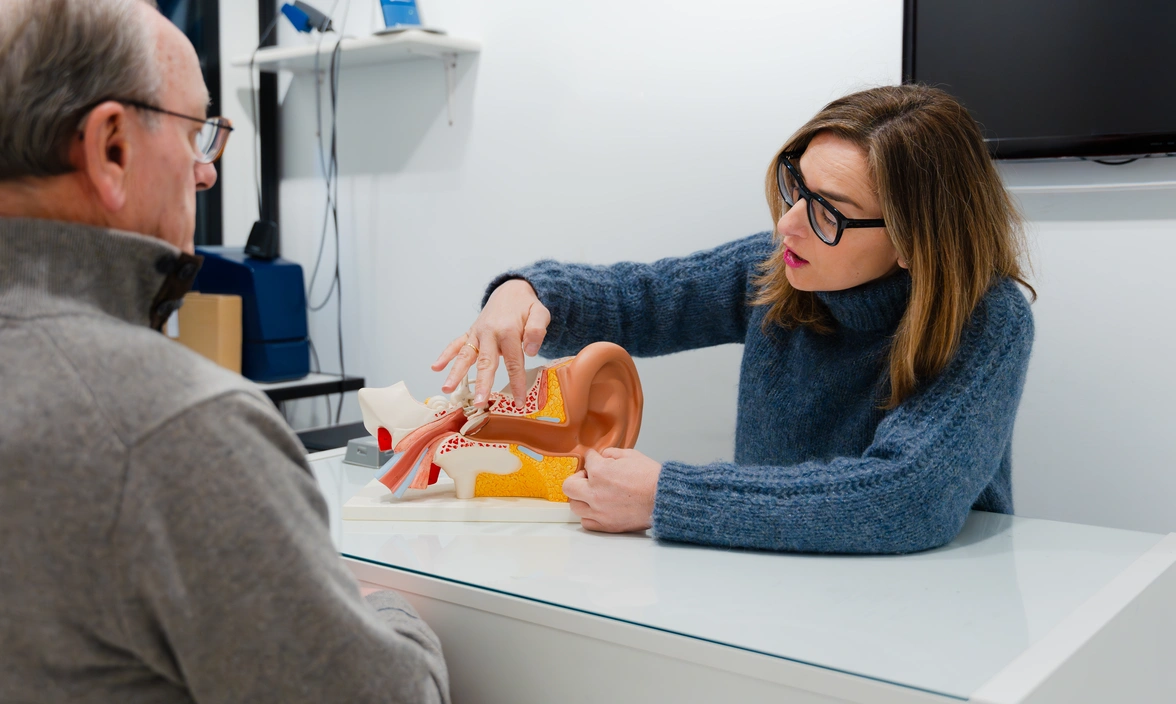Professionals who can help
Noticing the signs of hearing loss may cause concern. It is important to seek advice as early as possible if you or someone you know is worried about any changes in their hearing.
Noticing the signs of hearing loss may cause concern. It is important to seek advice as early as possible if you or someone you know is worried about any changes in their hearing.

Depending on where you live in the UK, will determine which care pathway you follow on your journey to diagnosis for hearing loss.
The first healthcare professional you may approach for advice is a GP via the National Health Service (NHS).
A GP will assess the changes you have been experiencing and, if needed, refer you to an audiologist or Ear, Nose & Throat (ENT) specialist, for further assessment.
In England and Wales, you may be referred to audiology services provided via the *Any Qualified Provider (AQP) scheme. This scheme allows private audiologists to offer NHS audiology services for adults aged over 55 years old. In some communities, you may be able to self-refer directly to AQP providers, however it is advised to check with your GP in the first instance.
*AQP is not currently implemented in Scotland or Northern Ireland.
Audiologists are healthcare professionals (either in the public or private sector) who specialise in hearing and balance problems. They will assess your hearing to determine the type and level of hearing loss.
If it is concluded that a hearing aid / device is needed to help you hear, they will also fit and programme the device and also support you throughout the process.
You can access these services for free through the NHS or AQP schemes. If you chose to access help from an independent or private audiologist, it is important to remember that costs may be incurred for their services.
If you experience a sudden hearing loss, or your GP believes the changes in your hearing require specialist examination, they may refer you to an ENT doctor.
An ENT doctor can diagnose the cause of hearing loss and recommend appropriate treatment options. This may include medication, surgery, or other interventions.
Registered charity in England and Wales no. 293358 and in Scotland no. SC040486. Royal Patron HRH The Princess Royal.